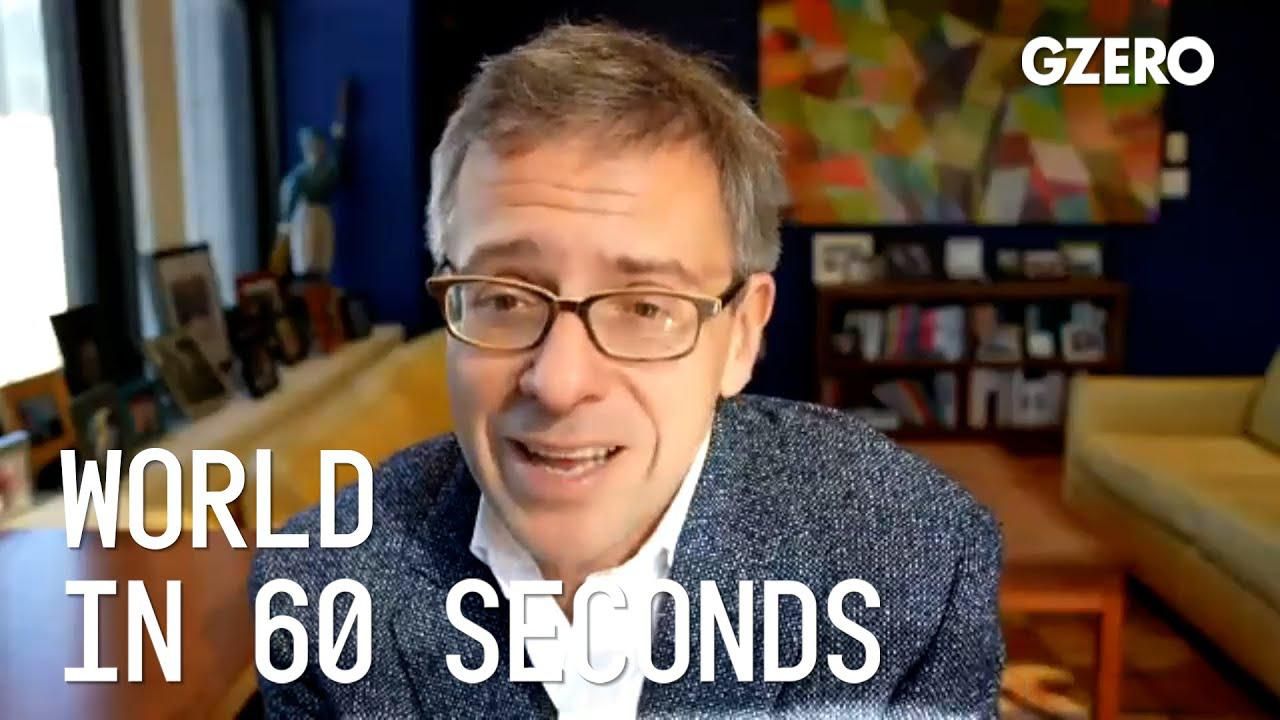Ian Bremmer shares his insights on global politics this week with a look at rising US inflation, the migrant crisis at the Poland-Belarus border, and the draft deal of the COP26 climate agreement.
US inflation hits its highest level in three decades. How will the Biden administration be impacted?
Well, it's not well. I mean, the economy is doing very well right now. We're getting all of these record levels in the markets. And companies have extraordinary profits, and growth is going gangbusters. So it's not stagflation. But I mean, the inflation levels on top of the fact that it's Christmas season coming up, and people are exhausted from dealing with COVID, is making people feel much worse about the economy otherwise would. I don't think we've ever seen this kind of a gap between economic reality and expectations and Biden's ability to do a lot on inflation is very limited at this point. I mean, he's pushing OPEC to produce more energy, which is a problem with the COP summit, but at the end of the day, I mean, this has a lot more to do with the massive explosion of post-COVID supply and demand growth, and all coming online at the same time. Plus labor shortages. It's not something that's easy for them to deal with. So I think it's going to be a challenge for them for months, but elections aren't for a year so the timing is not so horrible.
What's happening on the Poland-Belarus border?
Well, you've got all of these refugees that have come in from other countries around the Middle East for example, in Belarus that are being pushed by the Belarus military towards Poland. The Poland government doesn't want them. The Belarusians are happy to cause trouble. The Russians have been behind the scenes supportive and the Europeans with support from the United States will expand sanctions in relatively short order, including probably on the Belarus foreign minister, who has given these people asylum and maybe further sectoral sanctions, as well as against the folks that are leasing planes that are allowing these people to get into Belarus in the first place. This is yet another flash point between the Europeans and Minsk and more significantly Moscow because the Lukashenko government isn't going anywhere.
What's the draft deal of the COP26 climate agreement?
Well, I mean, as we've been expecting, it's a bit of a disappointment in the sense that the governments aren't aligned. The United States and China are not seeing climate in the same way. The developing world, the poorer countries are saying, unless you provide real money, we are not going to give you significant improvements in our net-zero commitments. And that money is very slow and it's not trusted. But you do have a lot of movement on climate. It's just not happening primarily through intergovernmental coordination. It's happening at the individual country level. It's happening at the NGO level, the individual action, mass support level and as a consequence, a whole bunch of corporates and bankers whose conversations I have with them are radically different on expectations of how fast they need to transition compared to three or five years ago. So I'm actually getting somewhat more optimistic, but the COP process, and if you look at that deal, is definitely one-third full at best glass.
- The ugly truth about the US economy - GZERO Media ›
- The Graphic Truth: China's growing share of the world economy ... ›
- China and US economic interdependence hasn't lessened - GZERO ... ›
- How the COVID-damaged economy surprised Adam Tooze ... ›
- Think buying American will help ease inflation? Larry Summers says it won’t - GZERO Media ›
- Power to the workers? What historical trends suggest about newfound employee influence - GZERO Media ›
More For You
2.5 million: The population of Gabon who can no longer get onto certain social media platforms, like YouTube and TikTok, after the government suspended access on Tuesday.
Most Popular
What’s Good Wednesdays™, February 18, 2026
Nuclear is back on the global agenda
Chris, an Army veteran, started his Walmart journey over 25 years ago as an hourly associate. Today, he manages a Distribution Center and serves as a mentor, helping others navigate their own paths to success. At Walmart, associates have the opportunity to take advantage of the pathways, perks, and pay that come with the job — with or without a college degree. In fact, more than 75% of Walmart management started as hourly associates. Learn more about how over 130,000 associates were promoted into roles of greater responsibility and higher pay in FY25.
Last week, at the Munich Security Conference, a group of global technology providers, including Microsoft, announced the Trusted Tech Alliance — committed to shared, verifiable principles for trusted, transparent, and resilient technology across borders. At a moment of economic volatility and zero-sum technological competition, countries and customers are demanding greater accountability from technology providers. The Alliance addresses this by bringing together companies from across Africa, Asia, Europe, and North America around shared commitments: transparent governance, secure development practices, supply chain oversight, open digital ecosystem, and respect for the rule of law — ensuring the benefits of emerging technologies strengthen public trust while driving job creation and economic growth. Explore the Trusted Tech Alliance here.
At the 2026 Munich Security Conference, entrepreneur and Project Liberty founder Frank McCourt makes the case that the internet, and the AI systems rapidly reshaping it, must be redesigned to serve people, not platforms.
